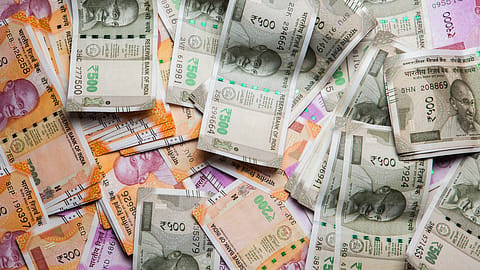Budget 2024: New income tax slabs introduced, standard deduction up; key details
Increased tax slabs, increase in standard deduction, and increased deductions from pensions will bring relief expected to over 4 cr salaried individuals and pensioners.

The Union Budget 2024 came to a close with Finance Minister Nirmala Sitharaman announcing a revised tax structure under the new tax regime. While the tax rates remain as they are, the increased tax slabs, an increase in the standard deduction, and increased deductions from pensions will bring relief to over 4 crore salaried individuals and pensioners across the country.
“We will continue our efforts to simplify taxes, improve taxpayer services, provide tax certainty, and reduce litigation while enhancing revenues to fund the development and welfare schemes of the government,” says Nirmala Sitharaman in her Budget 2024 speech.
The income tax contributes to over 19% of the exchequer. Finance Minister Nirmala Sitharaman shared that more than two-thirds have opted for the comprehensive new income tax regime. This simplified new regime introduced in 2020, comes without exemptions and deductions for corporate tax and personal income tax.
For salaried employees opting for new tax regimes, the standard deduction has been increased from ₹50,000 to ₹75,000. Additionally, for pensioners, a deduction on family pension has been increased from ₹15,000 to ₹25,000.
Under the revised slabs for the new tax regime, taxpayers are expected to save up to ₹17,500 offering significant relief and promoting greater disposable income for taxpayers. The new tax rate structure entails that those earning under ₹3 lakh will not have to pay any tax, for those between ₹3 lakh to ₹7 lakh, a tax rate of 5% has been implemented, professionals earning ₹7-10 lakh, ₹10-12 lakh, ₹12-15 lakh and ₹15 lakh and above will have to pay 10%, 15%, 20% and 30% tax rates, respectively.
“As a result of these proposals, the revenue of about ₹37,000 crore – ₹29,000 crore in direct taxes and ₹8,000 crore in indirect taxes – will be forgone while revenue of about ₹30,000 crore rupees will be additionally mobilised. Thus, the total revenue forgone is about ₹7,000 crore annually,” the minister adds.
While an increased disposable income will push private consumption, the government has sent mixed signals to the many households that have started investing heavily in financial and non-financial assets with the increased tax rates on capital gains.